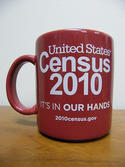Members of the millennial generation – born between 1982 and 2003 – carry a student debt burden of close to one trillion dollars. This is the group that includes many just entering the stage in life when people tend to settle down and start families. Even though Millennials are marrying later than previous generations, they would still be the prime market for sales of single family starter homes, if only they could afford them. read more »
Here’s a Way to Flood the US Housing Market with One Trillion Dollars
California Homes Require Real Reach
In the 1950s and 1960s, Southern California was ground zero for the "American Dream" of owning a house. From tony Newport Beach and Bel-Air to the more middle-class suburbs of the San Fernando Valley and Garden Grove to working-class Lakewood, our region created a vast geography of opportunity for prospective homeowners. read more »
Singapore Seeks Its Home
August 9th is National Day in Singapore, and it is accompanied by both public and private celebrations. From my family’s flat in the public housing estate of Hougang, we can hear the roar of jet planes over our heads as they make their way to the National Day Parade grounds for a fly-past and appear shortly before our eyes on the television screen. read more »
Land Planners Dig In Again
In the housing industry, land planners are the first to be dropped during a downturn… and the first needed in an upturn. A good way to monitor the optimism of the housing development market is to monitor the volume of land planning.
The land plan is the beginning of a long and arduous process. Unlike architecture, which is relatively quick from design to construction, land planning takes patience. It can easily consume a year or two (or more) for a US neighborhood to go from the initial design stages to the beginning of construction. read more »
Major Metropolitan Areas in Europe
Eurostat, the statistical agency of the European Commission (European Union) now designates metropolitan areas (Note) for the European Union (EU) and the European Three Trade Association (EFTA). The EU has 28 members, having just added Croatia, while the EFTA has 4 members. read more »
Young Tech Tycoons Pushing Left Coast Ahead Of East In Democratic Power Structure
There are two deep-blue regions that are critical to the Obama administration: the Northeast and the coastal region between San Jose and Seattle that truly deserves the moniker of the Left Coast. They dominate the Democratic donor list, and provide the administration with most of its appointees and much of its ideological moorings. read more »
Is the Census Bureau On Track For Another Estimating Fiasco?
When the 2010 Census results were released, a number of big cities had populations that were very off from what would have been expected based on the Census Bureau’s previous annual estimates of the population – sometimes grossly so. Some of these were related to cities that had challenged the estimates and had adjustments made in their favor, such as Cincinnati and St. Louis. Given that the Census Bureau seems to have approved every challenge, bogus challenges were all but encouraged. Still, there were significant variances in cities that didn’t challenge the Census, such as Chicago and Phoenix. read more »
Entrepreneurs Turn Oligarchs
For a generation, most Americans, whatever their politics, have largely admired Silicon Valley as an exemplar of enlightened free-market capitalism. Yet, increasingly, the one-time folk heroes are beginning to appear more like a digital version of President George W. Bush's “axis of evil.” In terms of threats to freedom and privacy, we now may have more to fear from techies in Palo Alto than the infinitely less-competent retro-Reds in North Korea. read more »
Can Kamaishi, Japan Recover From the Tsunami?
KAMAISHI, Japan - Two years after the disastrous 2011 earthquake and tsunami, most of the debris from the deluge has been cleared away in this small city on the northern edge of Japan’s tsunami coast. The cars and vans once piled on top of each other like some kind of apocalyptic traffic jam have been sorted out or sold for scrap. My guide, a local teacher who lost three of her aunts in the deluge, drives us up to a lookout. Spread out below us is the coastal village of Unosumai, or, more accurately, what once was the village of Unosumai. The view reminds me of pictures taken of Hiroshima after the atomic bomb had flattened almost everything. The only exception there was one surviving building, the former Industrial Promotion Hall in Hiroshima’s Peace Garden. read more »
How Can We Be So Dense? Anti-Sprawl Policies Threaten America's Future
Among university professors, government planners and mainstream pundits there is little doubt that the best city is the densest one. This notion is also supported by a wide number of politically connected developers, who see in the cramming of Americans into ever smaller spaces an opportunity for vast, often taxpayer-subsidized, profiteering. read more »





















